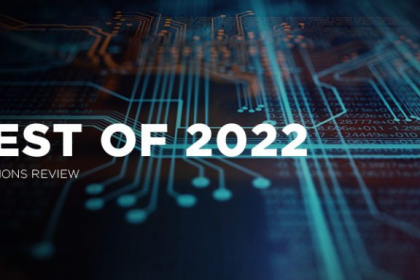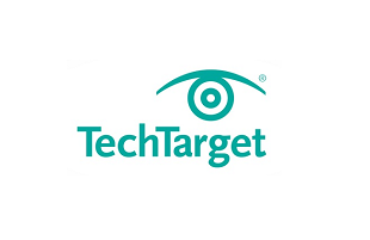The 12 Best Data Governance Tools for Financial Services for 2022 – Solutions Review


Solutions Review’s listing of the best data governance tools for financial services is an annual mashup of products that best represent current market conditions, according to the crowd. Vendors are assessed if they have a dedicated offering designed for professionals in this industry.
The editors at Solutions Review have developed this resource to assist buyers in search of the best data governance tools for financial services to fit the needs of their organization and use case. Choosing the right vendor and solution can be a complicated process — one that requires in-depth research and often comes down to more than just the solution and its technical capabilities. To make your search a little easier, we’ve profiled the best data governance tools for financial services providers all in one place. We’ve also included links to each company’s industry-specific product page so you can learn more.
Note: The best data governance tools for financial services are listed in alphabetical order.
Alation Data Catalog helps you find, understand, and govern all enterprise data through a single pane of glass. The product uses machine learning to index and make discoverable a wide variety of data sources including relational databases, cloud data lakes, and file systems. Alation democratizes data to deliver quick access alongside metadata to guide compliant, intelligent data usage with vital context. Conversations and wiki-like articles capture knowledge and guide newcomers to the appropriate subject-matter expert. The intelligent SQL editor empowers users to query in natural language, surfacing recommendations, compliance flags, and relevant policies as users query.

ASG Technologies offers a data intelligence platform that can discover data from more than 220 traditional and big data sources. The tool features automated data tagging by pattern matching, integration of reference data, and enriched metrics. Automated business linage allows users to better understand their data, and governance capabilities include those for tracing data in the data lake and traditional sources. ASG’s EDI product offers an impressive capabilities portfolio, with reference customers touting the vendor’s support for a variety of business use cases.

Ataccama ONE is a comprehensive data management and governance platform that also includes master data management and data quality capabilities. The solution touts a machine learning-centric user interface, as well as a data processing engine that is responsible for data transformations, evaluating business rules, and matching and merging rules. The platform supports any data, domain, and a variety of integrations.

Collibra’s Data Dictionary documents an organization’s technical metadata and how it is used. It describes the structure of a piece of data, its relationship to other data, and its origin, format, and use. The solution serves as a searchable repository for users who need to understand how and where data is stored and how it can be used. Users can also document roles and responsibilities and utilize workflows to define and map data. Collibra is unique because the product was built with business end-users in mind.

Egnyte offers content security, compliance, and collaboration solutions that govern an organization’s files regardless of where they reside. The product features a variety of user access capabilities, lifecycle management, data security, compliance, business process management, and API integration via a unified solution. Information governance functionality includes locating valuable and sensitive data, compliance automation, and more. Egnyte also touts granular policy controls for remote work and modernizing file systems.

Description: IBM has data management products for virtually every enterprise use case. Its products can be deployed in any environment, and partnerships with some of the other top names in the marketplace make it an even more intriguing option for organizations with large workloads and expansive data jobs. IBM also offers its Informix database that can integrate SQL, NoSQL/JSON, time series, and spatial data.

Immuta’s automated data governance platform lets users discover and access data through a dedicated data catalog. The product features an intuitive policy builder that provides author policies in plain English, without code so security leaders can write policies across any data. Immuta also enables compliant collaboration via projects, controlled workspaces where users can share data. When users switch projects, they assume the right permissions and controls. Immuta runs as a containerized solution on-prem, in the cloud or via a hybrid model.

Informatica Axon Data Governance is an integrated and automated data governance solution that enables quick access to curated data. The product ensures teams can find, access, and understand the data they need via a curated marketplace. Axon also enables data dictionary development for a consistent source of business context across multiple tools. Users can visualize data lineage, automatically measure data quality, and ensure data privacy with this solution as well.

Oracle Enterprise Metadata Management is a metadata management platform that can harvest and catalog metadata from any provider. The product allows for interactive searching and browsing of the metadata as well as providing data lineage, impact analysis, semantic definition, and semantic usage analysis for any metadata asset within the catalog. Oracle Enterprise Metadata Management also touts advanced algorithms that stitch together metadata assets from each of the providers.

Precisely’s data governance solution, Data360 Govern, is an end-to-end enterprise data governance, catalog, and metadata management solution that aims to give businesses confidence in the quality, value, and trustworthiness of their data. Data360 Govern works with Data360 DQ+, Spectrum Quality, and Trillium Quality to improve the quality of metadata and transactional data for enhanced business decisions.

SAP offers enterprise MDM functionality through its SAP Master Data Governance product. The solution can be deployed on-prem or in the cloud and enables users to consolidate and centrally govern master data. SAP includes support for all master data domains and implementation styles, pre-built data models, business rules, workflow, and user interfaces. Master Data Governance also lets you define, validate, and monitor your established business rules to confirm master data readiness and analyze the performance of data management.

Talend Data Catalog automatically crawls, profiles, organizes, links, and enriches metadata. Up to 80 percent of information associated with the data is documented automatically and kept up-to-date through smart relationships and machine learning. Data Catalog key features include faceted search, data sampling, semantic discovery. categorization, and auto-profiling. The tool also includes social curation and data relationship discovery and certification, as well as a suite of design and productivity tools.









